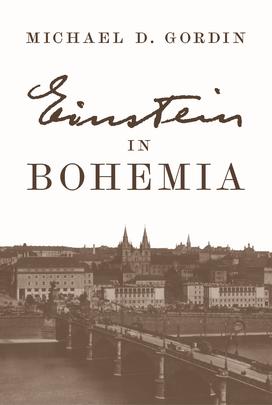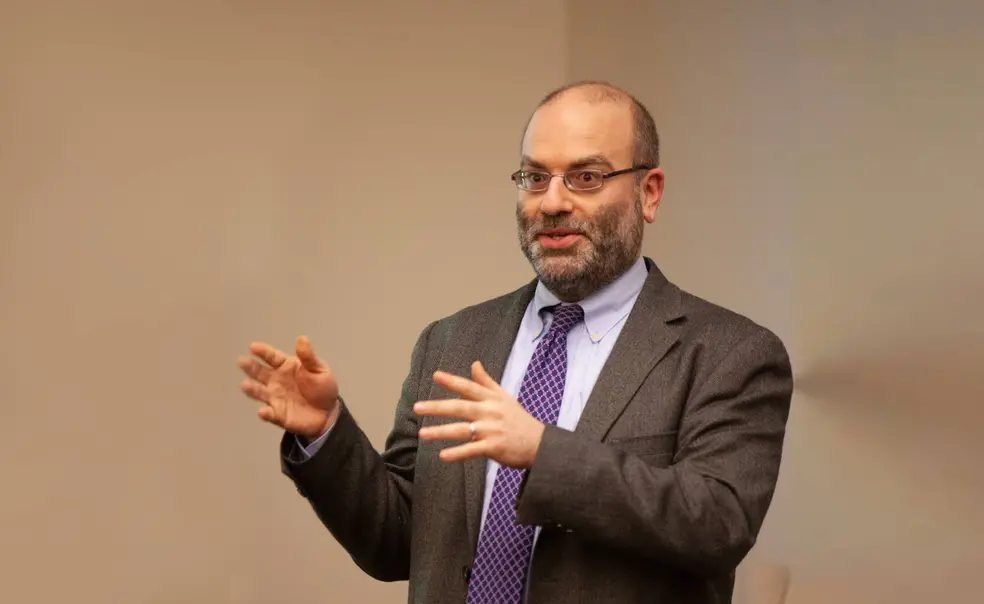Michael D. Gordin Explores a Pivotal Period in Einstein’s Life
The book: From 1911 to 1912, at the beginning of what would become his legendary scientific career, Albert Einstein lived for 16 months in Prague. His time as a professor at the city’s German University has often been considered a footnote in his biography, due to the brevity of his employment.
In Einstein in Bohemia (Princeton University Press), Michael D. Gordin promotes a more complex understanding of Einstein’s time in Prague. Einstein did not move to Prague expecting he would leave so quickly — he poured himself into his work, made new friends, and was immersed in the city’s culture. Through extensive primary sources, Gordin explores the effect that Prague’s rich history infused into Einstein’s life, and the way that Einstein made his own significant mark on Bohemia’s story.

The author: Michael D. Gordin is the Rosengarten Professor of Modern and Contemporary History at Princeton. His books include A Well-Ordered Thing: Dmitrii Mendeleev and the Shadow of the Periodic Table and Five Days in August: How World War II Became a Nuclear War.
Opening lines: Albert Einstein is dead. Bohemia, too, no longer exists. They have ascended to the realm of myths and legends, become words to conjure with — yet they are not, in general, invoked together. Legends have their own structure and rhythm, their own dominion over portions of our vast cultural landscape, and these two resonate with different groups, adding distinctly separate auras of fascination to anything they brush up against.
For 16 months, from early April 1911 to late July 1912, Albert Einstein lived in Prague. Many people, including fans of Einstein lore or devotees of Prague’s unquestionable charm, skip over this fact. It was, after all, such a short time, and quite early in the physicist’s career too. Einstein was only 32 years old when he arrived in the city, and there was no hint of the international celebrity he would later attain. If you turn to just about any biography of Einstein, the Prague year (and a quarter) is handled with streamlined efficiency. How relevant could 16 months be? Historians have dismissed it as an “interlude,” a “sojourn” (sometimes a “brief” one), a “detour,” a “way station,” and, most frequently, with Italianesque brio, an “intermezzo.”
We should not be so hasty. For many historical icons whom we associate very specifically with the central places in their biographies, a closer look reveals that a short period spent in an unexpected locale early in their lives transformed their worldviews — and they in turn transformed our world. James Joyce is almost inseparable from the Dublin he immortalized in his fiction or the Paris where he lived and wrote in his prime, but from 1904 to 1915 he lived on and off in Trieste, then a Habsburg port city, and the impact that these periods had on him is unquestionable. Mohandas Gandhi transformed India using the political techniques he had developed as a lawyer in South Africa, yet his few years studying for the bar in London in the late 1880s profoundly structured his vision of the British Empire and his sense of India. Mary Wollstonecraft, English philosopher and apostle of women’s rights, was deeply marked by her unexpected firsthand view, in the early 1790s, of the bloody Terror in Paris. The examples multiply dramatically when we come to the massive displacements caused by the Russian Revolution, the Great Depression, and the rise of Hitler’s regime. Einstein would be exiled by the last of these as well; Prague was an earlier, less noticed, displacement.
Reviews: "Using Einstein's sojourn in Prague as a scarlet thread, Michael Gordin guides us expertly through the labyrinth of physics, philosophy, and politics during the tumultuous early decades of the 20th century. The result is an enthralling meditation on national and religious identity, the power of people and place, and the nature of history and myth."—Lorraine Daston, Max Planck Institute for the History of Science












No responses yet